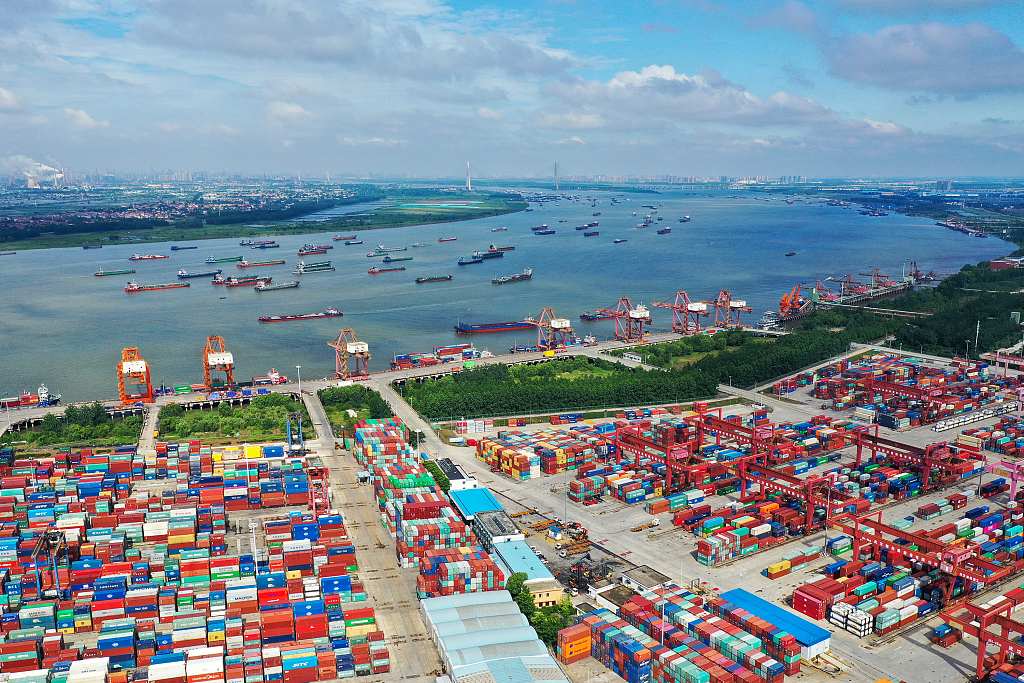At the G20 summit in Japan, the planned meeting between Chinese President Xi Jinping and US President Donald Trump on the sidelines has received considerable attention. This high-profile meeting may revive trade talks that reached an impasse in May, pinning high hopes for maneuvering a trade truce that could stave off a fresh round of tariffs.

(Photo: VCG)
While the re-engagement of the negotiating teams is a positive step, to make concrete progress, Washington might want to lend an ear to its counterpart and the market.
On the one hand, continuing to bully China will ultimately strengthen the resilience of the Chinese economy and the US will lose the Chinese market altogether.
China is still ready to purchase more US goods in any new trade talks, but it has to be "fair and balanced" in terms of the text of any agreement. China has called for taking care of "reasonable concerns" for either side and made appeals for equity and mutual respect.
The US waged much-publicized trade wars on its surplus economies, followed by a year of global financial turmoil and economic hardship for all concerned. Specifically, Trump is using tariffs as a way to force, what he considers, a recalcitrant China to end what he believes are unfair trade practices, with an aim to reshuffle bilateral trading ties to make them one-sidedly favor the US. He has called for "a fair and reciprocal economic relationship" and wants Beijing to commit to changing laws and economic policies he believes are contributing to a widening trade imbalance.
Washington labors under the illusion that China will emerge bruised from exorbitant tariffs. It is inevitable that the unfolding trade frictions are sapping external demand for Chinese products and investor confidence. However, China has quickly found substitutes from Europe and Latin America for high-tech and agricultural imports to replace the US market. For the first five months this year, China's trade with the EU increased compare with same period last year. By contrast, China's trade volumes with the US fell by 14.5 percent year-on-year for the same period.
Washington threatened to impose further tariffs if China didn't make prompt concessions. Beijing defied such a threat, and retaliated by a reciprocal counter-move on American goods in the first tit-for-tat round. Historically, Chinese people have had a tradition of fighting to the bitter end with peerless strength and tenacity when facing a protracted, all-round standoff. Nowadays the people are prepared to support the government to deal with troubled times together with incomparable endurance and strong will. Therefore, it would be more effective to address the concerns of each side, instead of escalating tensions.
The Trump administration should listen to the market and attend to the damage from industry and consumers to the newly proposed tariffs.
Although Washington is proud of healthy economic indices rarely seen in recent years, the ill-judged trade war has caused unintended self-inflicted wounds on the US economy. The disruption of the financial markets and the industrial chains is taking a toll on US consumers and businesses, with a worse-than-expected jobs increase last month, the lowest since October 2016. After the weeklong testimony to solicit public comment about imposing additional tariffs on another $300 billion worth of Chinese goods, including more consumer products that were previously untouched, the US Trade Representative's Office has been flooded with letters of complaints from companies.
Due to retaliatory measures, US businesses have seen vital Chinese purchases of their products plummet. Over 600 companies sent Trump a letter, urging him to hold off and put the brakes on possible new tariffs. US consumers and businesses, especially agricultural companies and soybean farmers, are mourning the new sales tax and higher prices of Chinese goods. It has threatened aggregate demand, consumption growth, disposable income, and reduced capital spending and investment. Internationally, after pressuring global financial markets and damaging the world economy for more than a year, Washington's dominance over the world economy has withered, and its once-superior businesses are losing their competitive edge.
What has happened so far has destroyed whatever credibility Trump may still have had on economic policy. What he swears will make the previously exceptional and indispensable country "great again" is in fact a political miscalculation on his part. His ambitious clamor for economic nationalism negates that reality and is all too clearly doing the very opposite.
The already fragile global economy cannot afford tit-for-tat measures to be pursued, markets to be closed or decoupled, global supply chains to be disrupted for multinationals like Apple and Huawei, and eventually, global growth to be subdued. Although it would be expecting too much for a single meeting to resolve everything, or even clinch a deal, given the divergent expectations of the two parties, the leaders of the world's two largest economies should avoid a long war of attrition, prevent nationalist rhetoric from ratcheting up, engage each other in a constructive manner, and try to find a compromise to end the trade and technology war at the G20 summit in Osaka.


